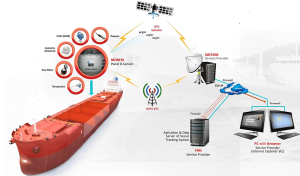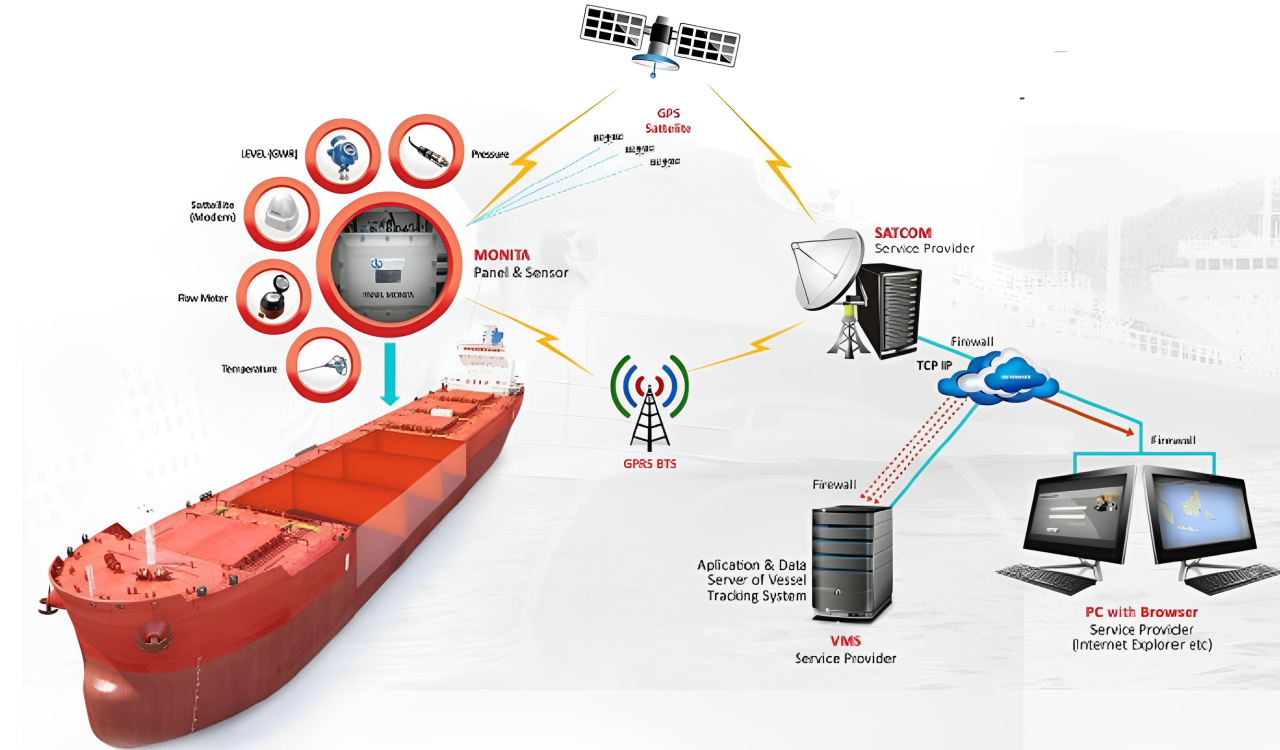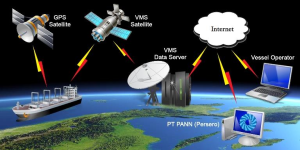In the dynamic world of maritime operations, managing vessels efficiently is crucial for ensuring safe navigation, optimizing operational performance, and complying with international regulations. A Vessel Management System (VMS) serves as the central framework for overseeing a ship’s technical, operational, and administrative processes. By integrating advanced technologies such as automation, data analytics, and real-time monitoring, vessel management systems enable shipping companies to enhance productivity, reduce costs, and maintain regulatory compliance. This article explores the key components, features, and benefits of vessel management systems, supported by real-world examples and industry case studies that demonstrate their application in modern maritime operations.
What Is a Vessel Management System?
A Vessel Management System (VMS) is an integrated digital platform designed to monitor, control, and optimize ship operations. It centralizes operational data, enabling shipowners, managers, and crew members to manage various shipboard processes, including fleet tracking, maintenance planning, compliance reporting, and voyage management. VMS platforms are essential for ensuring that ships operate efficiently and adhere to the standards set by international organizations such as the International Maritime Organization (IMO), Maritime Labour Convention (MLC), and Classification Societies like Lloyd’s Register and DNV.
Key Components of a Vessel Management System
A well-designed VMS incorporates several interconnected modules, each handling specific shipboard functions. These modules work together to provide a comprehensive management framework.
1. Fleet Tracking and Monitoring Module
Fleet tracking allows real-time monitoring of vessel positions, routes, and voyage progress using GPS and Automatic Identification System (AIS) data. It provides ship operators with continuous situational awareness. Example: Maersk Line, one of the largest shipping companies globally, uses fleet tracking modules integrated with weather routing systems to optimize voyages and reduce emissions. Core Functions:
- Real-Time Vessel Tracking: Monitors ship locations, routes, and estimated time of arrival (ETA).
- Weather and Route Optimization: Suggests weather-safe routes to minimize fuel consumption and reduce voyage time.
- Collision Avoidance: Alerts operators about potential collision risks using AIS data.
2. Maintenance and Asset Management Module
Maintenance management ensures that all onboard systems, machinery, and equipment remain operational, reducing the risk of technical failures. Case Study: A tanker fleet operator reduced machinery breakdowns by 40% after implementing a VMS-based maintenance module, enabling predictive maintenance of engine components. Core Functions:
- Preventive Maintenance Scheduling: Automates maintenance tasks based on engine running hours or calendar intervals.
- Equipment Inspection Logs: Records inspection data for components like engines, generators, and hydraulic systems.
- Spare Parts Inventory Management: Tracks spare parts availability and trigger reordering alerts.
3. Safety and Compliance Module
Ensuring safety and regulatory compliance is a critical function of any vessel management system. The compliance module tracks and records ship operations to meet international safety standards and environmental regulations. Example: Shell Shipping & Maritime adopted a compliance management module, reducing non-compliance incidents by 25%, thanks to automated reporting and alerts. Core Functions:
- ISM Code Compliance: Ensures compliance with the International Safety Management (ISM) Code.
- Document Management: Manages crew certificates, ship logs, and inspection reports.
- Environmental Compliance: Monitors fuel consumption, emissions, and ballast water management under IMO regulations such as MARPOL Annex VI.
4. Crew Management Module
This module manages crew schedules, contracts, certifications, and welfare services. It ensures that shipowners comply with the Maritime Labour Convention (MLC) regulations. Case Study: A large cruise operator used a VMS crew management module to manage 4,000+ seafarers, reducing administrative tasks by 30% through automated payroll and compliance checks.Core Functions:
- Crew Scheduling: Manages crew rotations, working hours, and leave planning.
- Certification Tracking: Tracks the validity of certificates like STCW endorsements.
- Payroll and Welfare Services: Automates payroll calculations and provides welfare management.
5. Performance and Fuel Efficiency Module
Fuel efficiency management focuses on optimizing vessel performance while minimizing fuel consumption and emissions. This module is critical for achieving operational cost savings and environmental compliance. Example: MSC Shipping implemented a fuel efficiency monitoring system, reducing overall fuel consumption by 15%, leading to substantial cost savings and lower emissions. Core Functions:
- Fuel Monitoring: Tracks fuel consumption in real-time.
- Engine Performance Analytics: Analyzes engine performance metrics such as RPM, power output, and fuel efficiency.
- Emission Reporting: Records CO₂, SOx, and NOx emissions as required by IMO’s Energy Efficiency Existing Ship Index (EEXI) and Carbon Intensity Indicator (CII).

–
Benefits of Vessel Management Systems
Implementing a robust VMS can transform ship management by streamlining operational workflows, enhancing safety, and driving profitability.
1. Enhanced Operational Efficiency
Automated processes reduce administrative workload, enabling ship officers and operators to focus on critical decision-making.
2. Improved Decision-Making
Real-time data analytics and performance reports provide valuable insights for optimizing vessel routes, fuel usage, and maintenance schedules.
3. Cost Savings
Proactive maintenance, fuel monitoring, and crew management minimize operational costs by preventing breakdowns, delays, and regulatory fines.
4. Regulatory Compliance
Integrated compliance modules ensure adherence to international maritime laws, reducing the risk of fines, detentions, and cargo delays.
5. Better Safety and Security
Safety alerts, equipment monitoring, and incident reporting improve onboard safety while mitigating security threats such as cyberattacks and piracy risks.
Challenges in Implementing Vessel Management Systems
Despite offering numerous advantages, implementing Vessel Management Systems (VMS) presents several challenges. One major hurdle is the significant upfront investment required for hardware, software, and crew training, making the initial costs considerable. Another issue is data integration, as connecting VMS modules with legacy shipboard systems can be technically complex and time-consuming. Training and adaptation also pose difficulties, as both crew members onboard and shore-based teams must undergo specialized training to operate the system effectively. Cybersecurity risks further complicate implementation since VMS platforms are exposed to potential cyber threats, necessitating strong firewalls, encryption protocols, and continuous system monitoring to ensure data protection.
–
Future Trends in Vessel Management Systems
As the maritime industry continues to evolve, VMS platforms are integrating advanced technologies to enhance their capabilities. Artificial Intelligence (AI) and Machine Learning are being used for predictive maintenance and operational forecasting, enabling ships to address potential issues before they arise. Blockchain technology is also being adopted to ensure secure cargo tracking and transparent documentation processes, reducing paperwork and increasing reliability. The Internet of Things (IoT) is transforming data collection, allowing real-time monitoring of ship systems through interconnected sensors. As autonomous vessels become more prevalent, VMS platforms will manage onboard AI-driven navigation and decision-making systems, creating a seamless ship management experience.
A well-integrated Vessel Management System (VMS) is essential for modern maritime operations. By centralizing critical functions such as navigation, maintenance, compliance, and crew management, VMS platforms boost operational efficiency, reduce costs, and enhance maritime safety. As advanced technologies reshape the maritime sector, vessel management systems will play an increasingly crucial role in ensuring sustainable, compliant, and profitable shipping operations. Shipping companies that adopt VMS solutions will gain a competitive edge in an industry driven by efficiency, safety, and environmental responsibility.


